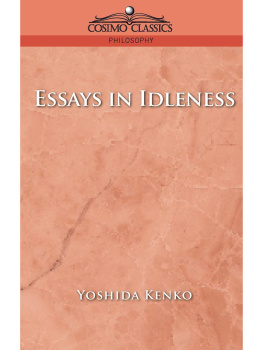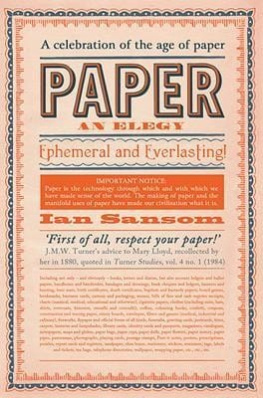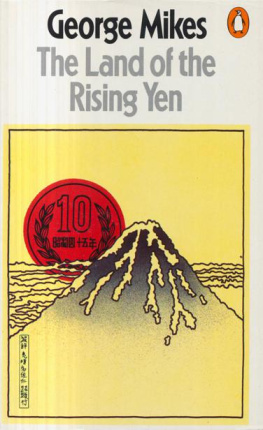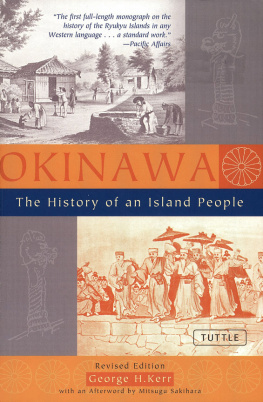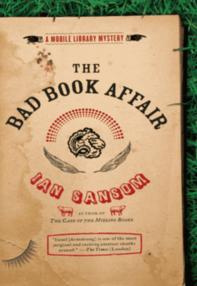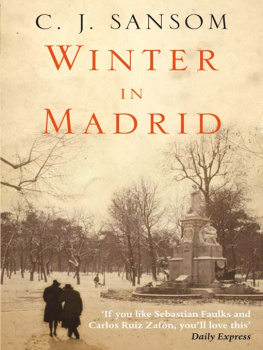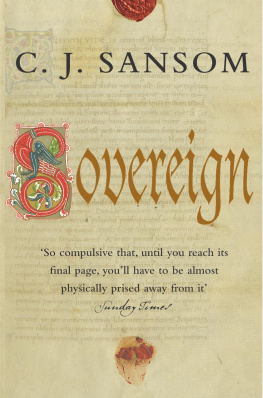George Sansom - Japan in World History
Here you can read online George Sansom - Japan in World History full text of the book (entire story) in english for free. Download pdf and epub, get meaning, cover and reviews about this ebook. year: 2010, publisher: Routledge, genre: History. Description of the work, (preface) as well as reviews are available. Best literature library LitArk.com created for fans of good reading and offers a wide selection of genres:
Romance novel
Science fiction
Adventure
Detective
Science
History
Home and family
Prose
Art
Politics
Computer
Non-fiction
Religion
Business
Children
Humor
Choose a favorite category and find really read worthwhile books. Enjoy immersion in the world of imagination, feel the emotions of the characters or learn something new for yourself, make an fascinating discovery.

- Book:Japan in World History
- Author:
- Publisher:Routledge
- Genre:
- Year:2010
- Rating:5 / 5
- Favourites:Add to favourites
- Your mark:
- 100
- 1
- 2
- 3
- 4
- 5
Japan in World History: summary, description and annotation
We offer to read an annotation, description, summary or preface (depends on what the author of the book "Japan in World History" wrote himself). If you haven't found the necessary information about the book — write in the comments, we will try to find it.
Japan in World History — read online for free the complete book (whole text) full work
Below is the text of the book, divided by pages. System saving the place of the last page read, allows you to conveniently read the book "Japan in World History" online for free, without having to search again every time where you left off. Put a bookmark, and you can go to the page where you finished reading at any time.
Font size:
Interval:
Bookmark:


This edition first published in 2011
by Routledge
2 Park Square, Milton Park, Abingdon, Oxon, OX14 4RN
by Routledge
270 Madison Avenue, New York, NY 10016
utilised in any form or by any electronic, mechanical, or other means, now
known or hereafter invented, including photocopying and recording, or in any
information storage or retrieval system, without permission in writing from the
publishers.
A catalogue record for this book is available from the British Library
points out that some imperfections in the original copies may be apparent.
welcome correspondence from those they have been unable to trace.
INSTITUTE OF PACIFIC RELATIONS
delivered by Sir George Sansom in Japan,
under the joint auspices of the Japan Institute
of Pacific Relations and the University of
Tokyo. These lectures were made possible
by a grant from the Rockefeller Foundation,
and first published by the Institute of Pacific
Relations in 1951.
fair dealing for the purposes of private study, research, criticism or
review, as permitted under the Copyright Act, 1911, no portion may
be reproduced by any process without written permission. Enquiry
should be made to the publishers.
Page |
INTRODUCTORY
Font size:
Interval:
Bookmark:
Similar books «Japan in World History»
Look at similar books to Japan in World History. We have selected literature similar in name and meaning in the hope of providing readers with more options to find new, interesting, not yet read works.
Discussion, reviews of the book Japan in World History and just readers' own opinions. Leave your comments, write what you think about the work, its meaning or the main characters. Specify what exactly you liked and what you didn't like, and why you think so.


